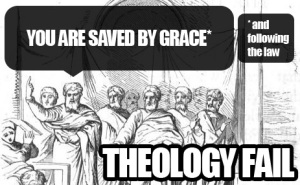(1) not exactly. just in general, it seems in general that A LOT of people are seeking something from life,
that they are missing growing up ,
and with both good and bad and mixed motives, some of those people are looking into (or being pulled into? by friends/others) .... hr to see if they can find out more 'correctly' how to enjoy life the way yahweh intends....
now, to interject a good bad example..... remember richard wurmbrand ? (tortured for christ; out of the holocaust)
he sought truth until he found it. (from an old man yahweh sent him to in the mountains of switzerland or similar)
before that, and afterwards, 'others' were used or allowed by yahweh to direct his direction - his steps .... EVEN IF THEY WERE NOT BELIEVERS..... yes, even HERETICS....
richard wurmbrand found yahweh because he was seeking yahweh.
along the way, heretics were used for housing, meeting places, ability(permits) to meet, even 'protection' from gestapo type authorities.
as richard said later - yahweh used them all to direct his steps, and eventually he came to Christ Jesus Savior King and Lord; yahweh used them in directing his steps, BUT THEY COULD NOT BRING HIM TO CHRIST, BECAUSE THEY WERE NOT IN CHRIST(they did not know CHRIST).
so, possibly, some this and some that of different groups/movements may be used by yahweh to direct people's steps/directions according to yahweh's purpose,

